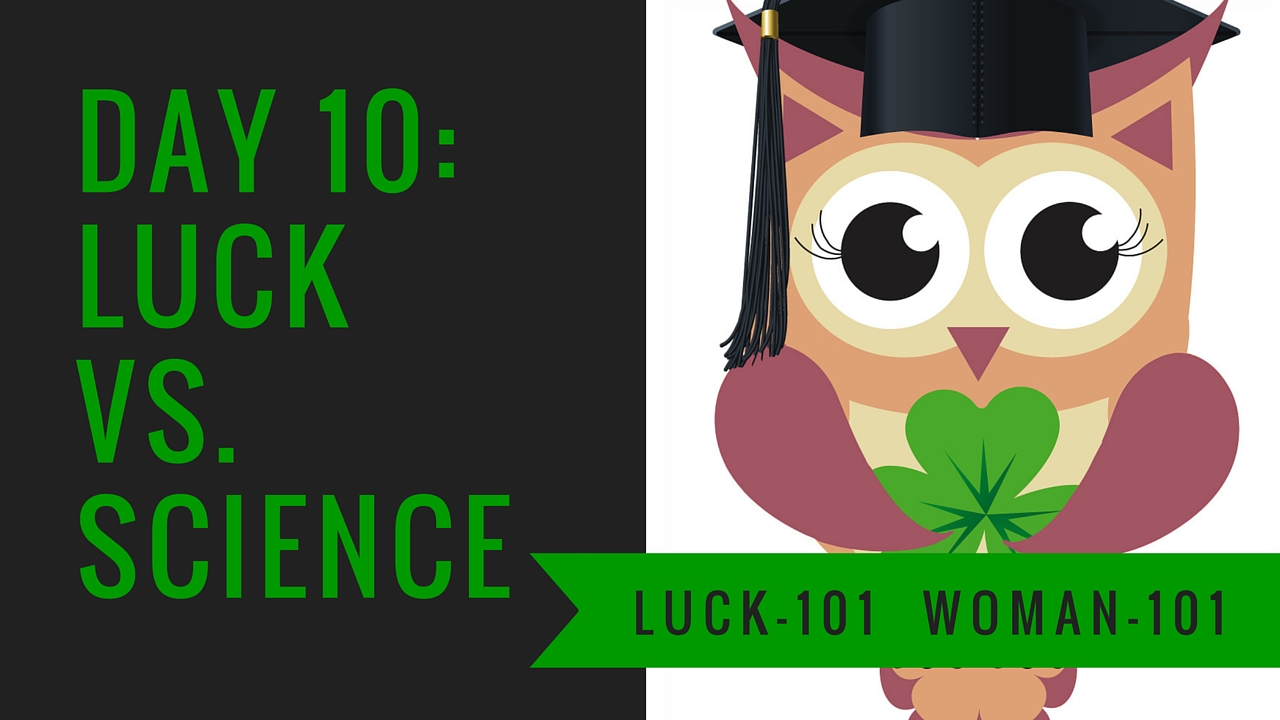

Scientific Connection Between Lucky Charms and You?
For those who don’t think of luck as a real “thing,” here’s an important question to ponder for today: Is luck scientific?
Before we get to the answer, let’s quickly examine why the question is important in the first place.
Don’t you want to feel that your life isn’t dictated by mere chance? Wouldn’t you rather feel confident that you’re not being blown about by the anarchistic winds of change, where no matter what you do, it doesn’t matter, because you lack control over your life? Of course you do.
Luck is a Concrete Concept
Luck is not only a real concept but capable of scientific examination and quantification. What’s good about that is that it means that you’re capable of harnessing luck and working it to your best advantage so that you do, in fact, have more control over your life.
The United Kingdom has served as the host for The Luck Project, where volunteers created a database of input provided by over 400 subjects from every conceivable walk of life who were interviewed, surveyed, subjected to experiments, asked to keep diaries concerning their experiences with luck, etc.
Through this database of information, researchers determined why one group of people had nearly everything work in their favor (“the lucky ones”) versus the other group where nearly everything was disastrous for them (“the unlucky ones”).
Was there a pattern? Any lessons to be learned?
Turns out…yes.
Per the scientific studies conducted, it was concluded that things turned out in the lucky ones’ favor because of what that they persistently and consistently did no matter what may have happened to them. The research confirmed that human beings particularly excel at detecting patterns in their lives…and while the unlucky ones allowed themselves to be directly controlled by bad circumstances, the lucky ones practiced what researches dubbed “counterfactual thinking.”
Say what?
Why Counterfactual Thinking Matters to You
In plain English it boils down to this: the degree to which you think something is fortunate or not is the degree to which you generate alternatives that are better or worse.
What you decide is important (in this case, how fortunate you are or are not) is going to guide your brain to move forward with that pre-specified theme so that it can determine patterns in your life that matches up with your instructions.
For example, if you lose your job you might fixate on your bad luck, get depressed and feel defeated. Or you could flinch from the sting of losing your job only to shake it off and feel energized, because now you view this bad event as a catalyst, inspiring you to find an even better job than the one you had before.
Why This Isn’t Just “The Power of Positive Thinking”
This isn’t purely about the power of positive thinking, though. Why? Per the findings of the researchers from The Luck School, those who were found to have an extremely successful (“lucky”) pattern of thought exhibited an openness to learning whatever lessons might need to be learned from a situation. No matter what.
This is key.
Going back to the example just given, a person with an extremely lucky mindset will learn from any mistakes they made in the past which may have led to their job loss, so as to better bulletproof their future. They will take those lessons, make distinctions and build on them from there to make better decisions and have better outcomes…all the while convinced that that’s how things are going to end up. So the brain begins to make observations that will match the patterns per the instructions given it by the “lucky one” who is engaging in positive thought processes.
Why a Scientific Connection to Luck is Good News
The fact that luck is the sort of thing that is capable of scientifically examination is a good thing. There’s nothing foo-foo about luck when it’s studied through a scientific lens–in fact, it lends credence to the acronym that’s related to luck, where it’s really just Labor Under Correct Knowledge. Counterfactual thinking is just one way to labor more intelligently.
Being open to all of the data that falls in your lap–the good, the bad and the ugly–and learning from that data in a way where you expect to take new and improved action and have some seriously intelligent traction in life means you’re anything but delusional.
Just like Thomas Jefferson, you may become a great believer in luck–where the harder you work (and the more open you are to great outcomes), the luckier you’ll be…at achieving your S.M.A.A.R.T. goals and living in harmony with your WHY.
Grab our 43-page eBook, “The Woman-101 31-Day Life Reboot Guide” FREE, by joining the Woman-101 Hoot-Whoot! Club. Go to: www.woman-101.com and join us!
Of course, if you like The Power of Positive Thinking, try the book by Norman Vincent Peale, available on Amazon.





